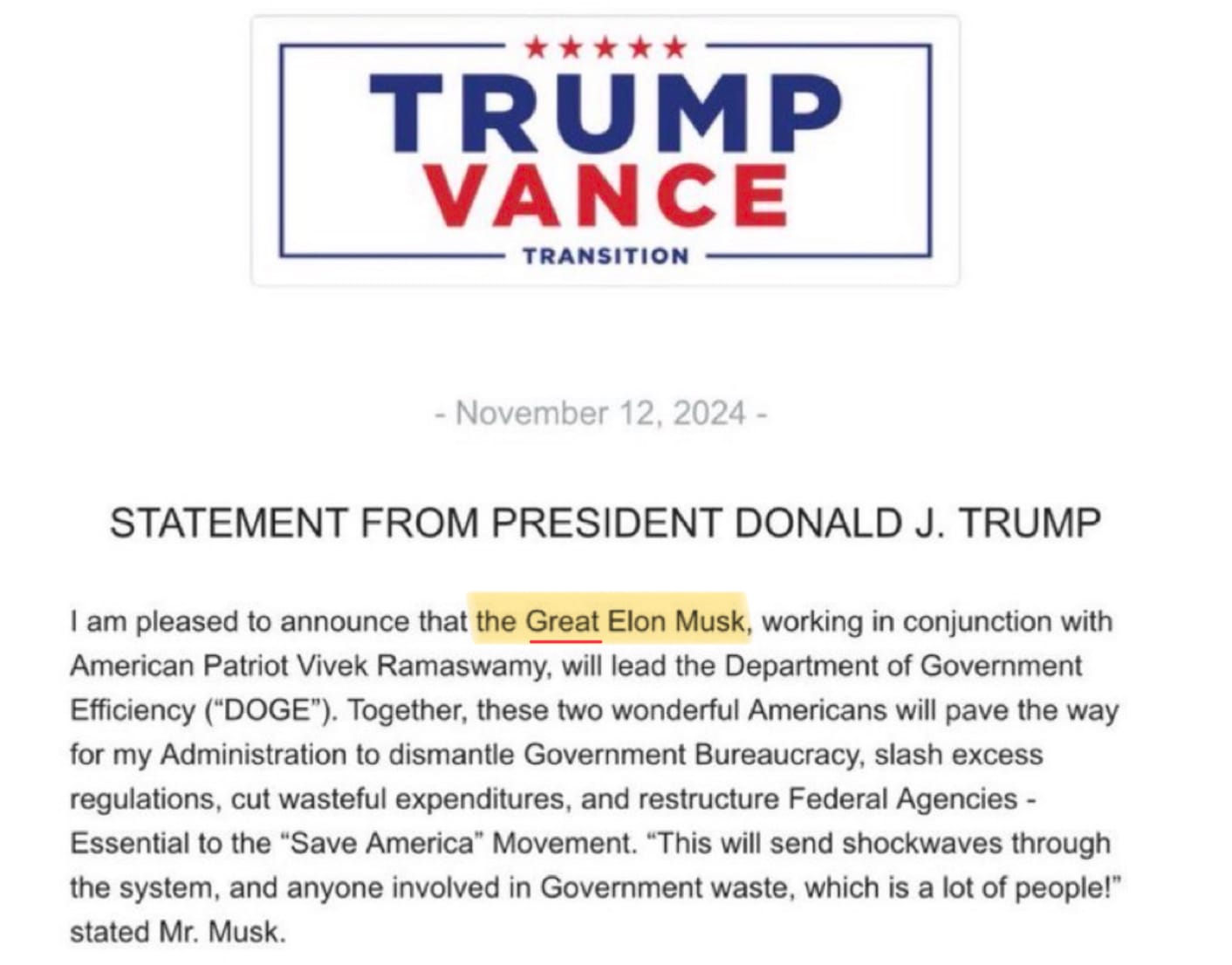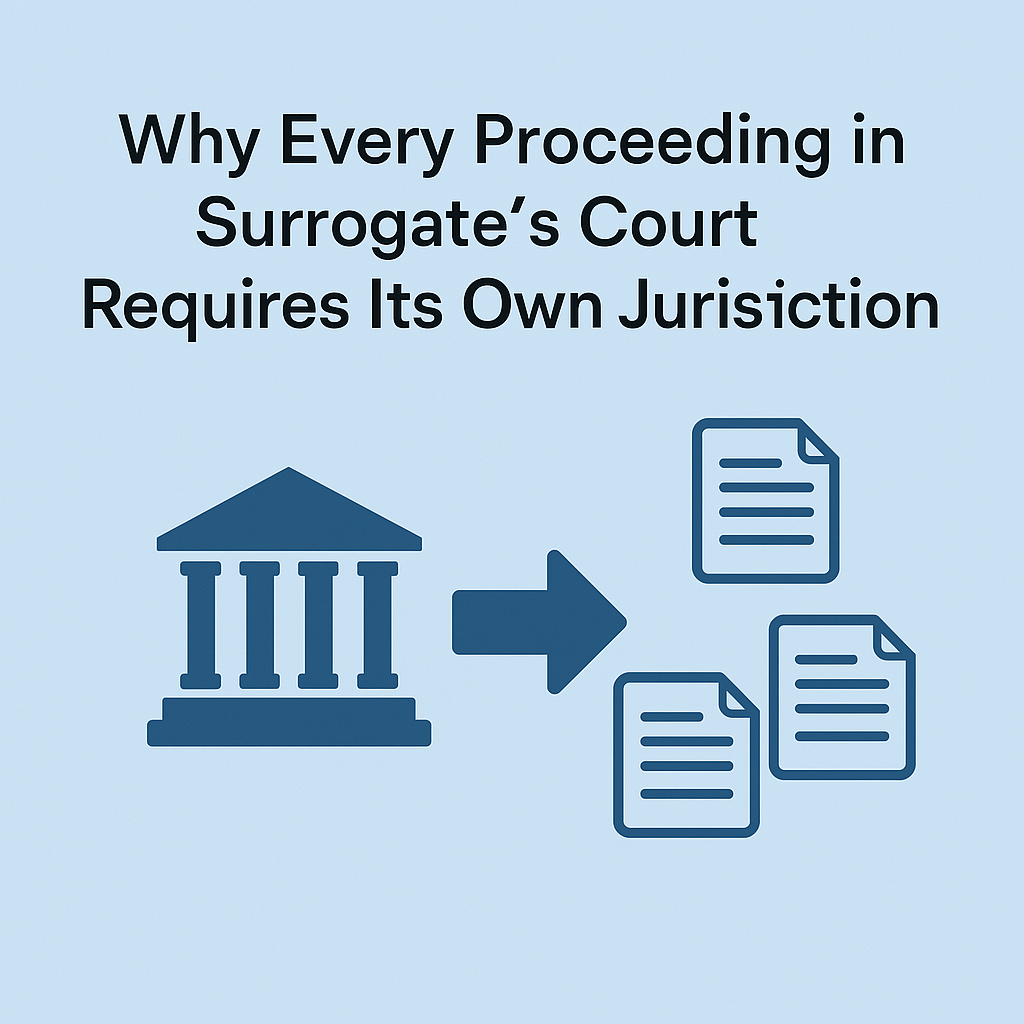When President Donald Trump announced that Elon Musk would lead the Department of Government Efficiency (DOGE), the acronym seemed like a playful nod to Musk’s well-known enthusiasm for Dogecoin, the cryptocurrency inspired by the viral Shiba Inu “Doge” meme.
But what if DOGE isn’t just a bureaucratic acronym? What if it signals something deeper—an unchecked consolidation of power? Spelled backward, DOGE becomes “EGOD”—a near-homophone for “Elon God.”
Given Musk’s unprecedented access to federal data, the near-religious language used to describe him in official statements, and the sweeping executive order backing DOGE’s power, this may not be just an amusing coincidence. Instead, it raises serious questions: Is Elon Musk consolidating unchecked authority within the U.S. government? And what are the implications for privacy and oversight?
DOGE: A Name with Hidden Meaning?
The DOGE acronym can be interpreted in multiple ways:
- DOGE as a Bureaucratic Acronym: The Department of Government Efficiency was created to reduce bureaucracy and streamline government operations. The name appears innocuous at first glance.
- DOGE as a Meme Reference: Musk has long embraced Dogecoin, frequently promoting it on social media. Many assume the acronym is a lighthearted nod to his crypto enthusiasm.
- DOGE as “Elon God” (EGOD): When reversed, DOGE spelled backward is EGOD—Elon God. A coincidence? Or a sign of how Musk’s role in government is being reshaped?
The Great Elon Musk
Official Trump-Vance transition materials referred to Musk as “the Great Elon Musk.” Is this just branding, or a reflection of how Musk’s influence is reshaping government itself?

The Executive Order: Unprecedented Data Access
The executive order backing DOGE provides sweeping access to government data, far beyond what any private citizen has previously held. It states:
(b) Agency Heads shall take all necessary steps, in coordination with the USDS Administrator and to the maximum extent consistent with law, to ensure USDS has full and prompt access to all unclassified agency records, software systems, and IT systems.
What Does “Prompt Access to All . . . Records” Really Mean?
DOGE now has near-total access to federal systems. This includes taxpayer records, Social Security data, and federal employee files. Yet the executive order provides no clear oversight structure to regulate how this access is used.
Government agencies are now obligated to cooperate with DOGE—effectively giving Musk and his team a backdoor into the country’s most critical IT systems.
The Cult of Musk: From Visionary to Digital Powerbroker
Musk has long been portrayed as a visionary billionaire, a genius entrepreneur, and a world-changing innovator. His influence spans:
- SpaceX (space industry)
- Tesla (automotive & energy)
- Neuralink (brain-machine interfaces)
- X (formerly Twitter, social media & free speech debates)
This mythmaking has turned Musk into a quasi-religious figure in tech culture, where his followers see him as a savior of free speech, innovation, and even humanity itself.
Now, with the Trump-Vance administration explicitly calling him “The Great Elon Musk” and placing him at the center of federal government restructuring, the question becomes: Has Musk moved beyond billionaire status to something resembling an unelected digital authority?
DOGE (or EGOD) grants him access to government systems in ways even elected officials do not enjoy.
Conclusion: DOGE, EGOD, and the Future of Government Power
Whether intentional or not, the Elon God (EGOD) interpretation signals a shift in Musk’s role—from entrepreneur to government powerbroker.
This isn’t about conspiracy theories—it’s about power, privacy, and the unprecedented role of an unelected individual in federal operations.
The real question isn’t just what DOGE stands for. It’s:
- How much power should one man have over government data?
- Who is overseeing Musk’s role in DOGE?
- What happens when a private individual holds more influence over federal systems than elected officials?
In the digital age, control over data is control over governance itself. With DOGE (EGOD), Musk may have just been handed the greatest consolidation of government access in modern history.
This is more than a question of efficiency—it’s about the future of government transparency.
What Do You Think?
Is DOGE just another acronym, or does it mark the rise of an unelected digital power? Should there be stricter oversight of Musk’s role in DOGE? Let me know in the comments.
Hani Sarji
New York lawyer who cares about people, is fascinated by technology, and is writing his next book, Estate of Confusion: New York.





Leave a Comment